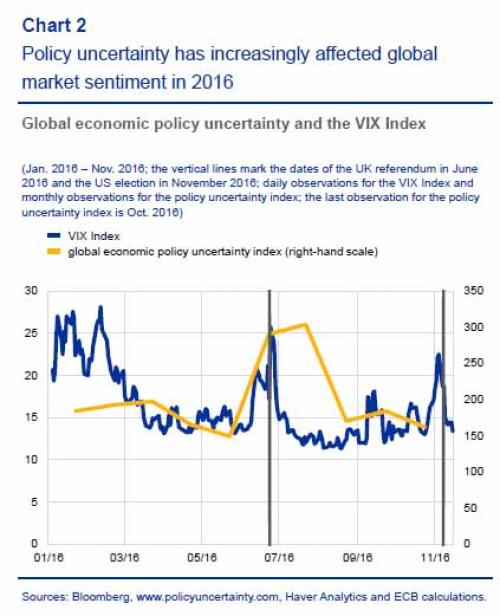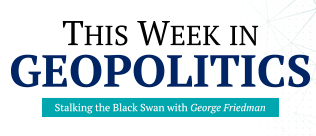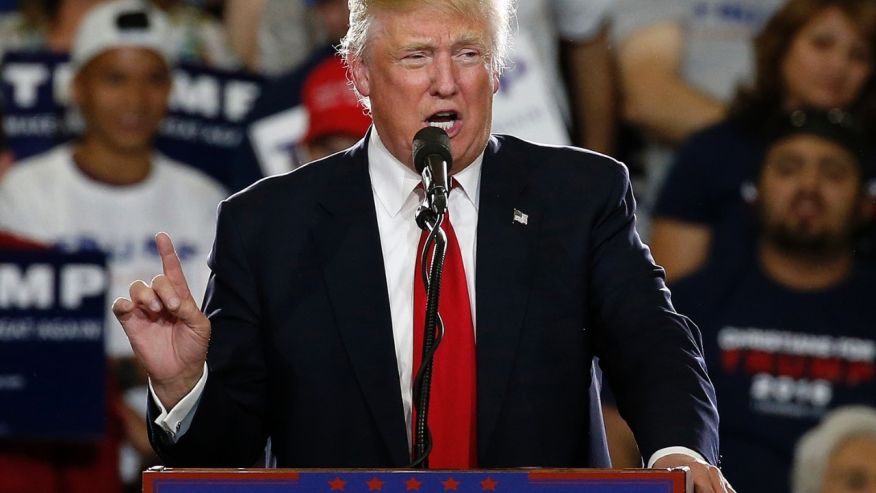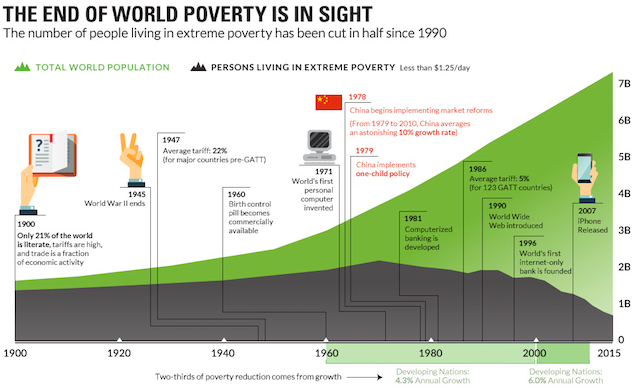Economic Outlook
One week after the BIS issued an unexpectedly stern, if completely ignored warning, that the surge in the USD is leading to an abrupt tightening in financial conditions around the globe, making the repayment of trillions in USD-denominated cross-border debt increasingly more difficult and suggesting that the Dollar index itself is the new “fear indicator”, overnight another central bank, the European Central Bank warned that the risk of “abrupt” global asset market corrections “have intensified” on the back of rising political uncertainty, posing a threat to banks, stability and economic growth.

…related:
As The Monetary Madness Continues, What Is Happening Is Stunning…

This weeks shocking stat: With all the outrage about Donald Trumps plans to de-port criminals, there is a President that has de-ported more in 8 years than all Presidents to date. The numbers are in the millions. Care to guess who?
….Michael’s featured guest Dr. Michael Berry PhD: The Fed is Throwing Up Its Hands


 The US presidential campaign contained a constant undertone of Russia and President Vladimir Putin. Putin said nice things about Donald Trump, and Trump about Putin. In fact, there is a small faction of Trump supporters that admires Putin for being a strong leader and for his position on gay rights and other matters. They do not see him as a former communist, but rather as a defender of Western civilization.
The US presidential campaign contained a constant undertone of Russia and President Vladimir Putin. Putin said nice things about Donald Trump, and Trump about Putin. In fact, there is a small faction of Trump supporters that admires Putin for being a strong leader and for his position on gay rights and other matters. They do not see him as a former communist, but rather as a defender of Western civilization.
The US also claimed that Russian intelligence tried to facilitate Trump’s election by hacking the emails of the Democratic National Committee and John Podesta, Hillary Clinton’s campaign chairman.
All of that is done now. Russia is Russia, the United States is the United States, and serious matters must be dealt with. To begin, we need to understand what real issues exist between the US and Russia. And at the heart of the matter is Ukraine.
The Russian view of what happened in Ukraine is that the US engineered an uprising in Kiev that drove out the legally elected government. The US says it did not engineer a coup, but it did support human rights activists opposed to a corrupt government in Ukraine. The Russian response is that the current government is no less corrupt.
The National Security Argument
After the change in Ukraine’s government, the Russians took formal control of Crimea and tried to foment an uprising in eastern Ukraine. It was contained by the Ukrainian military but not crushed. The Americans charged that the Russians were interfering with the internal affairs of the Ukrainian nation. The Russians responded that the US was audacious in making the claim.
In addition, the Russians pointed out that historically, Crimea had been part of Russia and was transferred to Ukraine in the 1960s. The Russians also had a treaty with Ukraine allowing control over the naval base in Sevastopol in Crimea. This base is vital to Russia’s national security. With an anti-Russian government in Kiev, Russia was protecting its rights under the treaty.
As for the uprising in eastern Ukraine, the Russians said it was a predominantly Russian region whose rights had been dismissed by the Ukrainian government. Russia said it wasn’t involved in a movement to establish a degree of regional authority, as had been done by ethnically distinct regions in many countries.
The US claimed the Russians were not only arming and directing the rebellion, but also had military designs on the country. So, the US and Europe placed sanctions on Russia. Russia demanded the sanctions be removed.
All this can be summed up by two charges. The Russians claimed the US was financing activists masquerading as human rights groups in order to destabilize those countries it wanted to control. Russia claimed that the goal of the US was to install pro-US regimes.
The US claimed the Russians were becoming internally more repressive and returning to the dictatorship that had existed in the Soviet Union. To the US, it appeared to be a matter of national sovereignty and liberal democracy. US President Barack Obama and Clinton’s insistence that this was the extent of US involvement was matched by the Obama administration’s fear that Putin was trying to recreate the former Soviet Union with a new ideology. Each claimed the other was aggressive and hegemonic.
Historical Buffer
A level beneath this also existed. Russia had survived for almost three centuries because of strategic depth. Historically, control over the Baltics, Belarus, and particularly Ukraine had been essential for Russia’s survival. Without this buffer zone, Napoleon, Kaiser Wilhelm II, and Adolf Hitler would have destroyed Russia.
The US move into Ukraine was therefore a fundamental challenge to Russian strategic interests (the Russians were less concerned by Europeans). Further, because the US knew it was a strategic challenge, it increasingly seemed that the Americans sought to destabilize Russia itself. A pro-US government in Ukraine (with forces trained and supplied by the Americans) was not acceptable.
For the past century, the US has had a consistent and fundamental strategic interest. If all of Europe united under a single hegemonic power, it would pose a threat to the survival of the US. Russian natural resources and manpower coupled with Western European technology and organization could more than match US power. US national security depended on control of the seas, which permitted American commerce and prevented foreign invasion. The only force that could challenge US Naval power would be a united Europe.
The US intervened in World War I in 1917, when it appeared the Germans had defeated Russia and were about to defeat the French and British to control all of Europe. The US fought in World War II to prevent another German conquest of Europe. The Cold War was designed to prevent a Soviet conquest and amalgamation of Europe. The US had to prevent the re-emergence of Russia as a potential hegemon.
Two geopolitical imperatives collided in Ukraine, clothed in a debate over human rights, national sovereignty, and charges of imperialism. Beneath all of this noise, the reality was that Russia could only regard US actions in Ukraine as an attempt to cripple or destroy Russia. The US was afraid that with Ukraine under Russia’s control, Russia would be able to slowly extend its influence among former satellites, and from there, into the center of Europe.
Subjectively the debate might have been about other things. Sometimes, political leaders don’t realize the stakes and proceed on an automatic path of action and response. Sometimes, they understand the issues quite clearly. In either case, as in economics, there is an invisible hand in geopolitics. Putin dismissed the human rights claims and saw Americans engage in making Russia incapable of defending itself. The US dismissed Russia’s claim that it had violated Ukrainian national sovereignty and focused on the potential threat that Russia could pose to Europe.
The US began working with Poland and Romania to build a defensive line. The Russians began an expensive process to create a more powerful military force. Then oil prices collapsed, and Russia faced an even deadlier situation.
Russia failed to develop a modern economy after 1992. It remained, like the Saudis, an energy exporter. And when the price of oil crashed, the Russians faced an economic crisis. The Soviet Union collapsed when defense expenditures rose and energy prices declined in the 1980s. That same configuration confronted Russia again, and Russia faced an existential crisis.
Putin first had to maintain national morale. He had to demonstrate that regardless of economic problems, he had made Russia a great power. He was not in a position militarily to wage war in Ukraine, but he was in a position to appear powerful. Engagement with American and European aircraft and ostentatious military exercises near borders increased the sense of Russian power at home and abroad.
This was the key to Russia’s involvement in Syria, which had no strategic value to the Russians. The US could easily isolate or destroy a naval base there, and Bashar al-Assad meant nothing to Putin. But the intervention in Syria allowed Putin to appear to be engaging the US on equal terms… in a place where the likelihood of a clash appeared great but had little chance of happening. Putin needed to buy time for his military to mature, or oil prices to rise, or both. Neither was likely to happen quickly.
An unofficial truce took hold in Ukraine. The Kiev government remained in place, Russia held Crimea, and fighting in the east was reduced to a low, yet constant, level. A reality had been produced. For Putin, this was not an unreasonable basis for an agreement.
Mutually Beneficial Agreement
A formal agreement would recognize the current Ukrainian government and accept its Western orientation. It would also bar US military aid and troops from Ukraine. The Russians would withdraw support for rebels, but they would be granted a degree of autonomy. Crimea would be a postponed issue (or one of those eternal diplomatic processes designed to appear that a problem is being addressed without actually addressing it). Russia would redeploy forces away from a threatening posture toward Ukraine, something it would be happy to do given Russia’s military constraints.
In effect, Ukraine would be neutralized, Russia would have made major concessions, and the US wouldn’t have to be concerned about a Russian move to the West. If either side broke the agreement, there would be time to respond. Ukraine is large. The problem is that the Obama administration was content with an informal reality and had no desire to give Putin the appearance of a victory.
Putin read this move as a desire to bring him down. That may have been on the administration’s mind, but distrust of Russia coupled with a lack of urgency meant endless conversations between US Secretary of State John Kerry and Russian Foreign Minister Sergey Lavrov, with no progress.
Putin’s interest in Trump derived from Trump’s lack of interest in foreign adventures and indifference to creating liberal democracies around the world. Trump’s argument is that the US needs an overriding interest in an area to engage. Given this position, he likely would acknowledge that Russian hegemony over Europe is unacceptable, but he would not plan to engage so early and so deep in a region of Russian interest. For Trump, a neutralization of Ukraine would be acceptable. The personal dimension, Putin hoped, would eliminate Obama’s desire to see him fall.
Beneath the jabber of the campaign (to which Trump contributed far more than his fair share) and the mutual public charges and counter-charges, the situation between the US and Russia can be explained. The basis for a mutual agreement emerges from that explanation. The reality is that Russia is not in a position militarily to conquer Ukraine, nor is the US in a position to defend it. As long as the Russians don’t return to the Carpathian Mountains and the US doesn’t go east of the Dniester River, no alarm bells need to be rung. Both sides know that conflict in the future is possible, but neither is ready for it now.
Trying to figure out Trump’s and Putin’s thinking is not easy. Intentions are buried under layers of bluster. But intent is clearer than many might think. It would be a quick success for both sides and would strengthen two weak political hands.

George Friedman
Editor, This Week in Geopolitics![]()
….related from Ozzie Jurock & Michael Campbell: The Good Bad & Ugly For Real Estate From a Trump Presidency

The Number of People in Extreme Poverty Has Been Cut In Half Since 1990.
Could An End To World Poverty Be Near?
One particular area that is fascinating to look at is poverty.
In absolute terms, the total amount of people living in extreme poverty peaked in 1970 when 2.2 billion of the world’s 3.7 billion people lived on less than $1.25 per day.
Today, in an astonishing reversal, only 0.7 billion of 7.3 billion people are below this poverty-line worldwide.
Click on Image or HERE For Much Larger View

 Trumps Triumph:
Trumps Triumph:
No, America, that wasn’t an earthquake. That was a media scream that registered 11 on the Richter scale as Republican Donald Trump defied media demands and went on to win the presidential election in the early hours of Wednesday morning. Hillary Clinton called Donald Trump to concede.
A nearly unanimous media failed to carry the unpopular Hillary across the finish line. Once again, America rejected the liberal Democrat. Advil set the tone early with a comment: “Politics giving you a #migraine? Advil® Migraine is the best candidate for pain relief.” CNN commentator David Axelrod called it a “primal scream.” ABC’s Terry Moran called it “a rejection of the neoliberal world order that has been the consensus around the world.” CNN commentator and former Obama green jobs czar Van Jones called the election a “White-lash against a changing country.”
When it appeared that Hillary would not concede, after campaign chairman John Podesta appeared before her supporters in Manhattan and told everyone to go home and get some rest, even some in media criticized her. USA Today Washington correspondent Paul Singer was typical: “Stunned that @HillaryClinton did not concede. If @realDonaldTrump pulled that, people would go bananas.”
The election was a national rejection of both the traditional media and the Hollywood elite who piled on money, endorsements, appearances and offensive videos telling people to vote. Celebrities went full-on insane. Actor Mark Ruffalo vowed to do a nude scene if Clinton won. Madonna said she would perform oral sex on Clinton voters. It was so overboard that it might well have caused voters to just say no to all of star media.
The night went from what CNN’s Wolf Blitzer called a “real nail-biter” to one his co-anchor Jake Tapper said is, “going to put the polling industry out of business.” Left-wing Fusion referred to a “Terrifying/exciting state-by-state #ElectionNight.” The New York Times prediction tracker went from overwhelmingly predicting a Clinton win to 94 percent for Trump as the clock neared 11 p.m. Even when Hillary won Virginia, the Times was sending out downbeat emails saying she “preserved a slim path to victory.”
Trump supporter and former Arkansas Gov. Mike Huckabee joked: “Wouldn’t wanna be under that giant glass ceiling if Hillary is forced to concede. That party might end like Carrie’s prom.” Fox News contributor and commentator Richard Grenell blasted the news media. “The media is for sure losing tonight no matter who pulls this off. How wrong they were.”
What media and pollsters had predicted would be an early night turned into a long contest. Around 8:40 p.m., liberals and media staff started to panic. Huffington Post Senior Political Reporter and Politics Managing Editor Amanda Terkel showed the tension. “Office debate right now: ‘Trump might win!’ ‘Trump ain’t going to win.’”
By 9 pm ET it spread. CNN commentator Sally Kohn showed the typical liberal reaction. “IT SHOULDN’T BE THIS CLOSE!!!!!!!!!!!!!” Former CBS anchor Dan Rather summed it up. “Nearing cardiac arrest time for team Clinton.” Global Editorial Director, The Huffington Post’s Howard Fineman said what was on many lips: “This is starting — starting — to look like an American #Brexit.”
The media pointed fingers at FBI head James Comey. Pundit Michael Smerconish blamed him for the vote. “Changing my @TIME 2016 person of yr prediction (who most influenced news) to James Comey #ElectionNight.” Atlantic Senior Editor Adam Serwer put it succinctly: “Congrats to the New York FBI office.” He went further later: “Congratulations to Vladimir Putin, the Ku Klux Klan, and the Federal Bureau of Investigation.”
Atlantic Senior Editor David Frum found another villain – Russia. “We may be living through the most successful Russian intelligence operation since the Rosenbergs stole the A-bomb.”
Daily Beast columnist Jonathan Alter blamed it on masculinity. “Trump didn’t win because of Comey. He won because he’s a testosterone candidate and men weren’t ready for a woman president.” He continued to hammer out hyperbole: “America has never faced such a crisis before. World War II was 4 years but US always fairly sure we would win. This will be a new menace.”
Journalists had earlier celebrated as Hillary broke the “the glass ceiling.” ABC gave up all pretense of neutrality and had former Clinton staffer and Clinton Foundation contributor George Stephanopoulos moderate election night coverage. Comedian Emo Phillips reflected Hollywood’s agenda in one short Tweet: “I don’t get it. We had all the funny tweets.”
The New York Times showed that media bias remained an issue into election night, writing that, “an intense public distrust in the media is threatening the networks’ traditional role as election night scorekeeper.” In a think piece discussion about coverage of the race, the Times controversial media columnist Jim Rutenberg said Trump, “received coverage of a billionaire reality-television star who turned politics into performance art.”
He followed that up with one of the worst media bubble comments of the election: “The press needs to explore the frustration of those many Americans who think free trade’s gone too far; that immigration threatens the national fabric; and that insiders from Washington, Wall Street and the media have rigged the system against them.”
Election Day brought out the strange in the media, as well. CBS Evening News veteran Bob Schieffer wondered if the nation were “enduring some kind of curse.” He added in nice biblical metaphor: “What should we expect next – that it will rain frogs? I wouldn’t bet against it.”
Pollster Nate Silver crowed early because he had been criticized for giving Trump a better chance to win the World Series than Trump had of becoming president. The Cubs won. “This doesn’t seem like an election in which one candidate had a 99% chance of winning tbh,” he Tweeted.
Washington Post quasi-conservative columnist Jennifer Rubin bashed the GOP in her election day screed, urging Republicans to help Clinton succeed. “Do I think all this is likely? No, but then we are among the thousands of center-right Americans who think the solution to the sclerotic GOP may very well be a new political party.”
Earlier in the day, The Washington Post described the ballot with a mountain full of understatement: “An acrimonious race reaches an endpoint.” Of course, the Post probably described WWII as an international disagreement.
The foreign press chimed in, too. German newspapers warned of a “Trumpocalypse” and called the GOP candidate a “Horror-Clown.” The Daily Mail described the vote as, “Clinton, Trump fight for soul of divided US before vote.”
Far left media grew more bizarre as the day went on. Huffington Post featured a story headlined: “I Voted With My Vagina And I’m Proud Of It.” Buzzfeed Senior editor Rachel W. Miller retweeted a Cosmo article on anal sex with this classic comment: “Pretty sure this experience is worse than any cringey butt sex, Cosmo, but ok.”
As the perfect conclusion to the night, Huffington Post decided to stop using the controversial tagline it had on Trump stories. “The Huffington Post’s editor’s note calling Donald Trump as a ‘racist’ and ‘xenophobe’ is no more, a source in the newsroom tells POLITICO.”













